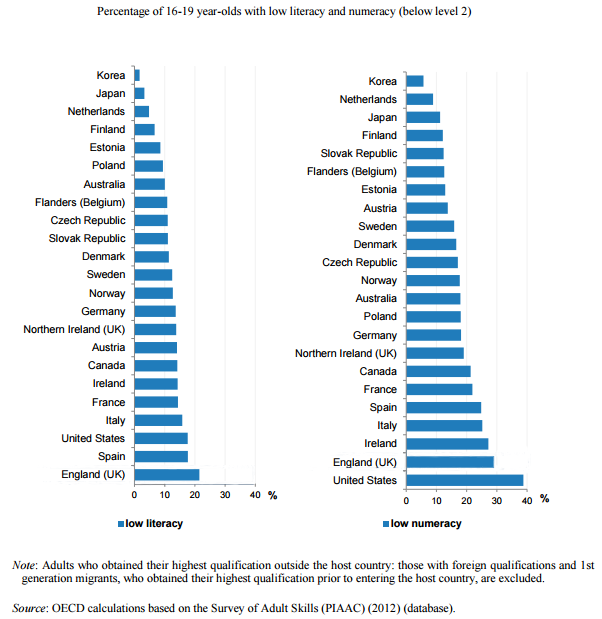Religious – but not moral – self-determination... When I was a child still living at home, I never had any clear understanding of what my parents' religious beliefs were. In hindsight that seems rather remarkable – not the sort of thing that happens by accident. In addition, I know something now that I didn't know as a child: our parents were determined
not to indoctrinate us with any particular religious belief. I know this from conversations I had (separately) with both my mom and my dad.
Growing up, I had the vague notion that mom had some sort of Christian faith. This notion came more from inference than from anything she overtly professed. For instance, she urged me at one point to attend Sunday school with my cousin (whose family was
very religious). Another time, she expressed some concern that we were growing up without exposure to the Bible. We
owned a Bible, with the family tree inscribed in it, but I never saw either mom or dad reading from it, and certainly they never read from it to us. Other than those vague sorts of things, religion never really came up at home. My dad was less ambiguous – he fairly frequently mocked religious people, most especially those who wore their religion on their sleeve, but didn't have the morality to match their talk. I was pretty certain that dad didn't hold any religious beliefs (Christian or otherwise).
I remember eating dinner at my cousin's house when I was quite young, and being admonished to “wait for grace” when I started to dig into the plate set before me. Saying grace before a meal was a new ritual for me. Later I discovered that many of my friends' families had a similar habit – even though they never did so at lunch when we were in school. Encountering this ritual was the first recollection I have of running into the actual practice of religion.
After that meal at my Uncle Donald's house, I asked mom why they said grace before the meal. I can still remember her reaction to that: her face had various emotions playing over it, but what she said was “They’re giving thanks to God for the meal they are about to eat.” – the straightforward answer. Naturally, my response was to ask why they would do such a thing, and what did God have to do with it? I think mom was sorry she started down that path :) But she tried hard to give me a direct and unbiased answer. I don't remember her exact words any more, but I came away from that conversation with an understanding that many people believed there was a divine being, called God, who created the world and everything in it, and that it was incumbent upon them to worship and honor this God. Furthermore, these people believed that their soul lived on after their bodies died, and where their soul lived (heaven or hell) depended on one's behavior and faith during life.
One thing I did
not walk away with: any sense at all that my mom thought such beliefs were right or wrong. When I asked, she said: “That’s something you’ll have to make up your own mind about.”
That, I know, is an unusual stance for any parent to take. But that's exactly the stance they did take, and (much later) I discovered that it was very deliberate. My dad was an atheist (though I didn't know this until the '90s!), and mom an agnostic (I didn't know that for certain until the '80s). My dad was fairly certain in his own beliefs, my mom much less so. Something they shared: a determination to
not indoctrinate their kids with their own beliefs. They wanted us to make up our own minds on the subject. My dad expressed this most clearly to me in a talk we had on one of our many trips together. He recollected how before they were even married, he and mom talked about their shared belief that kids should be free to explore their religious inclinations on their own, without having their parents' beliefs crammed down their little throats – or even used to influence them. I don't know how common such a parental stance is, but I don't know anyone else whose parents shared it. Most parents seem to consider it a duty of theirs to inculcate their children in their own religious beliefs, and indeed many religions feature such inculcation as a fundamental parental responsibility.
But that stance was specific to religious beliefs, and most definitely
not the case with regard to moral beliefs. Both mom and dad had very well-formed moral senses, centered on honesty and charitable behavior (they subscribed enthusiastically to
the Golden Rule). We were not left to our own devices on a moral code – they spent a lot of time and effort molding us to share their version of morality. I think they succeeded in this reasonably well.
I found out just yesterday that my brother Scott shares my own reaction to our parents' decision not to indoctrinate us on religion: we are both profoundly grateful to them for the gift of letting us decide for ourselves what we believed. My own questions about religion (and the question of whether a god or gods existed at all) sent me on a quest that lasted some fifteen years. My starting point was simple enough: I didn't understand
why so many people believed in the existence of a god. I think this derived from the simple fact that my parents never
told me that gods existed – had they done so when I was very young, I'm pretty sure I'd have grown up believing that blindly. My quest led me to extensive reading about dozens of religions, including all the “mainstream” religions. I read a dozen or so English versions of the Bible (some quite different than others), the Koran (in English translation, of course), the Torah, and quite a few other texts relevant to other religions. I went to several church services, including Protestant, Catholic, and Episcopal churches. I've been in prayer meetings in a mosque, several synagogues, visited a Buddhist monastery, talked with a master at a Shinto temple, and much more. Mom (especially) and dad
encouraged me in these explorations, which I suspect is an uncommon thing. More recently, having moved into an area where the vast majority of the population are members of the LDS church (Mormons), I've read the Book of Mormon and several other books about the LDS church, the better to understand my neighbors and new friends. Had I been indoctrinated by my parents into their chosen religion (or absence of it), I doubt I would ever have undertaken this quest – most likely, I would simply have assumed that my parents were right (and that the parents of those who were members of other religions were wrong). My life has been much richer for having made this investigation – not only did I finally make up my
own mind, but I now have a reasonably well-informed appreciation of many religions, and of religiosity in general.
And I have that gift of self-determination from mom and dad to thank for it...
 Meanwhile, Jim Johnson and the crew from Cache Homes were busy doing the demolition work that is the first phase of our current construction project. At right you can see one of them at work with a jackhammer, trying to reduce our former front porch to manageable chunks. We all got surprised by what a solid job was done on that porch – about 5 yards of concrete poured as a single giant piece. Someone wasn't scrimping on concrete :)
Meanwhile, Jim Johnson and the crew from Cache Homes were busy doing the demolition work that is the first phase of our current construction project. At right you can see one of them at work with a jackhammer, trying to reduce our former front porch to manageable chunks. We all got surprised by what a solid job was done on that porch – about 5 yards of concrete poured as a single giant piece. Someone wasn't scrimping on concrete :) A little later, excavation work started for the foundation of our sun room. Late yesterday afternoon, this same area started flooding with water after the loader drover over it. We figured out that there was a 2" PVC line feeding an old (and defunct) irrigation system. The loader's weight split the line. Jim dug it out in an area beyond any excavation he was planning, and early this morning I capped it off. This afternoon, the excavation began in earnest, as you can see at left. The first bit of work is to clear around the basement casements, because the old steel casements are being replaced with larger concrete boxes. One of these will be used to let our cats move between the sun room and their current home in our basement.
A little later, excavation work started for the foundation of our sun room. Late yesterday afternoon, this same area started flooding with water after the loader drover over it. We figured out that there was a 2" PVC line feeding an old (and defunct) irrigation system. The loader's weight split the line. Jim dug it out in an area beyond any excavation he was planning, and early this morning I capped it off. This afternoon, the excavation began in earnest, as you can see at left. The first bit of work is to clear around the basement casements, because the old steel casements are being replaced with larger concrete boxes. One of these will be used to let our cats move between the sun room and their current home in our basement.









































